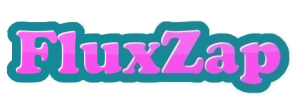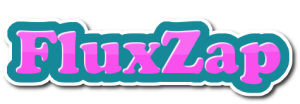How to Find Suggested Pages for Edits on Wikipedia
Wikipedia thrives on collaboration, and anyone can contribute by editing existing pages or creating new ones. If you’re looking to make valuable contributions but don’t know where to start, finding suggested pages for edits on Wikipedia is a great way to begin. Wikipedia has numerous tools and areas that guide editors to pages in need of improvement.
This guide will help you discover how to find suggested pages for edits on Wikipedia, whether you’re a seasoned editor or a newcomer eager to contribute.
Why Contribute to Wikipedia?
Wikipedia is one of the largest and most visited online knowledge platforms, but it’s constantly evolving. With millions of articles in multiple languages, there are always pages that need updates, corrections, or expansion. By editing pages, you’re helping to ensure the quality and accuracy of information while contributing to a global knowledge base.
Finding pages that need improvement can also be a good way to gain experience with Wikipedia’s editing guidelines and standards. It helps you contribute meaningfully to the community while honing your editing skills.
1. Explore Wikipedia’s “Community Portal”
The Community Portal is a hub for editors, listing pages that need attention. It’s a great starting point if you’re looking for suggested pages to edit.
Here’s how to find it:
- Go to Wikipedia’s main page.
- Scroll down and look for the “Interaction” section in the left-hand sidebar.
- Click on “Community Portal”.
Once inside the Community Portal, you’ll find several options, including:
- Articles needing cleanup: Pages that require formatting corrections, style improvements, or better sourcing.
- Pages needing expansion: Articles that need more information or sections to be added.
- Stubs: Short articles that require significant development to cover the subject thoroughly.
Browsing these categories is an easy way to find suggested pages for edits that match your expertise or interests.
2. Use Wikipedia’s “Backlog” Pages
Wikipedia maintains various backlogs—lists of articles tagged for specific issues. These include articles with problems like poor references, missing citations, biased content, or lack of clarity.
To access these, follow these steps:
- Search for Wikipedia backlog in the Wikipedia search bar.
- Select the relevant backlog from the search results, such as the Citations needed backlog or the Articles for cleanup backlog.
You’ll find a wide range of pages that need specific edits, from adding citations to fixing grammar and style issues.
3. Visit the “Recent Changes” Page
The Recent Changes page shows a real-time feed of the latest edits and updates made across Wikipedia. This can be a goldmine for finding articles in need of further edits.
To find Recent Changes:
- Click on Recent changes in the left sidebar of any Wikipedia page.
- Review the latest edits. Pages that were recently edited may still need more updates, improvements, or fact-checking.
You can even filter recent changes based on your interests or the type of edits you’re looking to make. This tool helps you stay up to date on evolving topics and find opportunities to contribute in real time.
4. Use Wikipedia’s “Tasks for New Editors” Feature
If you’re new to Wikipedia, the platform offers a “Tasks for New Editors” feature, which provides beginner-friendly editing suggestions. These are easy-to-edit pages where newcomers can practice their skills.
To access it:
- Log in to your Wikipedia account (you must have an account to use this feature).
- Navigate to the Contributions page (found in the top-right dropdown menu).
- Look for the section titled Tasks for New Editors.
This feature offers simple editing tasks such as correcting typos, adding citations, and formatting. It’s a great way to start contributing without needing advanced Wikipedia editing experience.
5. Check Wikipedia’s “Project Pages”
Wikipedia has numerous WikiProjects—groups of editors who focus on specific topics or types of edits. These WikiProjects often maintain lists of articles that need improvement within their area of expertise.
Here’s how to find WikiProjects:
- Search for a topic of interest (e.g., “WikiProject History” or “WikiProject Medicine”).
- Visit the project page and look for links to Articles needing attention or Tasks.
These projects often have dedicated sections listing suggested pages for edits, including requests for help with specific improvements.
6. Search for “Maintenance Templates”
Articles tagged with maintenance templates usually need work. These templates signal issues like missing citations, neutrality problems, or insufficient coverage.
To find them:
- Simply browse Wikipedia articles.
- Look for banners at the top of pages stating issues such as This article needs additional citations for verification or This article is a stub.
- Click on these templates to see a list of all articles tagged with that issue.
This method helps you discover articles that require specific improvements based on the templates applied.
7. Use Wikipedia’s “Article Alerts”
Article Alerts is a tool that notifies editors about articles requiring action, such as those proposed for deletion, needing citations, or tagged for review.
To use Article Alerts:
- Search for Wikipedia: Article Alerts.
- Browse the alerts for articles that need edits or attention.
This tool is particularly helpful if you’re interested in contributing to controversial or high-traffic topics.
Conclusion
Wikipedia offers a wealth of opportunities for editors to contribute by suggesting pages in need of improvement. From the Community Portal to specific backlogs and WikiProjects, finding articles that need edits is easier than ever. Whether you’re fixing typos, adding citations, or expanding content, your contributions make a significant difference in keeping Wikipedia accurate and informative.
By using these methods, you can easily discover suggested pages for edits and start making meaningful contributions to the world’s largest free knowledge base.


